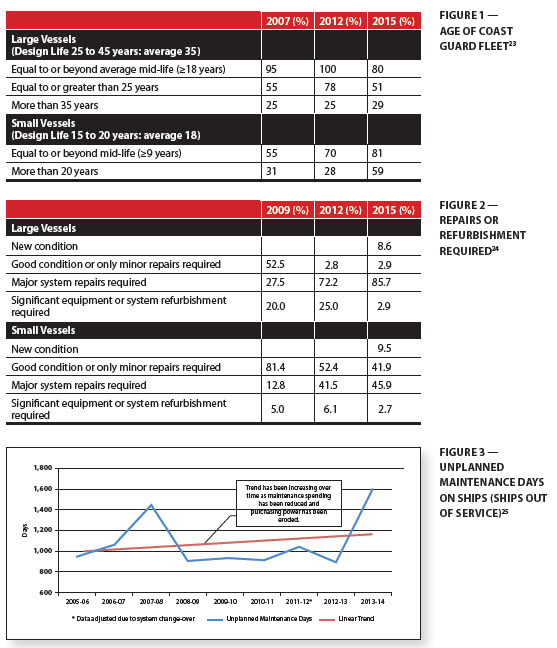Canada's Coast Guard in Desperate Need
A report prepared for Transport Canada and quietly tabled in the House of Commons says the nation’s coast guard is understaffed and desperately in need of new ships.
The review was launched on June 25, 2014, and concluded on December 21, 2015, when it was submitted to the Minister of Transport by the Chair of the Review, David Emerson, a former Conservative cabinet minister. It was tabled at the end of February.
The review Pathways: Connecting Canada’s Transportation System to the World states that unplanned maintenance on aging coast guard vessels skyrocketed in 2014. “Not only is it understaffed, but its fleet is one of the oldest in the world and urgently requires renewal (individual ships average nearly 34 years of age).” Without such renewal, it will have to pull ships from service, further reducing reliability.
Canada has been slow to use maritime transport to promote development and strengthen sovereignty, states the report. “Canada must ensure that it meets the challenges of increased maritime traffic in the Arctic, the St. Lawrence, the Great Lakes, the Seaway, the Pacific and the Atlantic. Because of existing governance arrangements and inadequate funding, the Canadian Coast Guard is not currently well equipped to do so.
“Given that 29 percent of the large vessels are more than 35 years old, and close to 60 percent of small vessels are older than the design life of 20 years, it is not surprising that the number of major systems repairs required is increasing, vessel days are decreasing and the number of ships out of service is increasing over time.”

The report states that under the national shipbuilding and procurement strategy, which requires the Canadian Coast Guard to purchase ships from Canadian shipyards, it can only replace one ship a year, at most. At that rate, the median age of the fleet will not decrease. Other strategies, such as outsourcing or leasing, are not part of the strategy and thus cannot be deployed to meet short-term requirements.
In addition, the review notes that the 2015 Report of the Independent Review of the M/V Marathassa Fuel Oil Spill Environmental Response Operation found that the Canadian Coast Guard lacked adequate staff to respond in any part of its region at any time.
The review report warned that coast guard icebreaking services in Arctic are decreasing, while vessel traffic in the region is increasing.
Vancouver-based Seaspan Shipyards is planning to build the replacement vessels. The first in a series of science vessels is already under construction, but the major project to build a heavy icebreaker is not expected to get underway until around 2020.
Last month, Quebec-based Davie Shipyards submitted a $1.7 billion plan to Procurement Minister Judy Foote to build or repurpose a fleet of icebreakers and support ships. However, the plan was rejected by the Liberal government.

that matters most
Get the latest maritime news delivered to your inbox daily.
The review looked forward 20 to 30 years to identify priorities and potential actions in transportation that will support Canada’s long-term economic well-being. The government is currently reviewing the report.
The review is available here.
